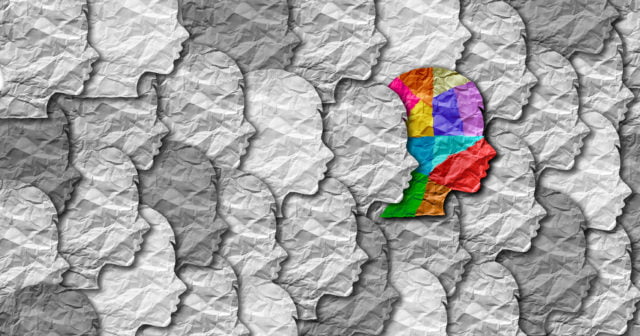Filter


Caring for a Parent Can Take Financial Toll
Last spring, as COVID-19 tore through the nation’s nursing homes, many people agonized over whether to pull their elderly parents out and assume responsibility for the care. The fall surge in the virus is no doubt causing more handwringing as adult children again weigh the challenges of home care against concerns about their parents’ physical and mental well-being. One practical consideration is the impact on the work lives of parental caregivers, who are overwhelmingly women. Recent research has found that “there are long-term costs associated with caregiving reflected in [lower] earnings even long after caregiving has taken place.” The research involved women in their 50s and 60s with at least one living parent or in-law, though they generally provided car…
December 1, 2020
Giving Thanks in Trying Times
In this difficult time, there many things to be thankful for: our family’s good health, our medical workers and scientists, our cleaning crews, grocery store workers and delivery drivers. We must also remember the people who have lost loved ones. To stay safe, millions of Americans have scaled back tomorrow’s meal to a modest event. But we hope that all of our blog readers can find comfort in the things that we can be thankful for. Happy Thanksgiving. Read our blog posts in our ongoing coverage of COVID-19. ……
November 25, 2020
How Long Will You Live? Try This
How often do you eat red meat? Do you exercise regularly? Cancer in your family? Did you go to college? These questions – among the varied and complex predictors of longevity – are packed into a calculator that will estimate how long you could live. The calculator was created by Dr. Thomas Perls, an expert on longevity and the genetics of aging at Boston University. Articles about the links between longevity and diet and lifestyle are perennial fodder for the popular press and health magazines. But Dr. Perls’ research dives deeper – into genetics. In his work with geneticists, statisticians and computer scientists, he has studied the connections between genetics and people with exceptional longevity – nonagenerians (people living into…
November 24, 2020
Blue-Collar Workers Often Retire Early
Construction and factory workers, truck drivers, and cleaning crews don’t always have the flexibility to work a few extra years to beef up their monthly Social Security checks. Several blog readers stressed this point in their comments on a recent blog article, “Changing Social Security: Who’s Affected.” Lorraine Porto retired from a desk job, but her family is filled with craftsmen, carpenters, electricians, farmers, and truckers who worked “until they were worn out.” People in white-collar jobs don’t always appreciate “just how tough and demanding it is” to climb poles every day, descend into manholes, build skyscrapers, or bring in the hay in 90-degree heat and sub-zero temperatures, Porto said. Her comment was in response to the article, which described…
November 19, 2020
High Fees Tied to Mutual Fund Complexity
When David Marotta is investing his clients’ money in mutual funds, he scrutinizes the fees. To demonstrate why fees are so important, Marotta charted the fees and 10-year returns for dozens of index funds in the Standard & Poor’s 500 family. Since these funds all track the same index and their performance is roughly the same, the fees will largely determine how much of the return the investor keeps and how much goes to the mutual fund company. “The larger the fee the less that it performs. It’s kind of a straight line,” said the Charlottesville, Virginia investment manager. “Anytime we’re picking a fund” for a client, “we’re trying to find the lowest-cost fund that we can find in that…
November 17, 2020
Opioids and Workers with Disabilities
Everyone knows about the dangers of opioid addiction. But prescription opioids can be useful to people with physical disabilities if they ease their pain so they can hold down a job. A new study finds that this might be occurring in certain parts of the country where more opioid prescriptions are written. But this finding is at odds with other evidence in the study that these same areas also see increased enrollment in Social Security’s disability program. A possible increase in employment is puzzling, since this program has strict limits on how much people can earn. Adibah Abdulhadi at the University of Wisconsin reconciled her seemingly contradictory findings this way: some people with disabilities, including some who rely on opioids,…
November 12, 2020
Does Retiring Cause Memory Loss?
After four or five decades of work, retirement is liberating! It’s gonna be great! Right? Well, not necessarily. It depends on how you retire. In this video, Ross Andel, director of the School of Aging Studies at the University of South Florida, warns that a risk to retiring is that it can “speed up the aging of our brain. It could make us slower and more forgetful.” His research demonstrates how work and retirement influence brain functioning. He tested the memories of people in their early 60s living in Canberra, Australia. Every four years, they were asked to remember as many random and unrelated words in a list as they could. Naturally, they couldn’t remember as many words at…
November 10, 2020
Changing Social Security: Who’s Affected
Due to the strength and agility required for physical labor, half of blue-collar workers sign up for Social Security as soon as they’re eligible – at age 62. But a large majority of white-collar workers wait so they can lock in a larger monthly check for retirement. In a new study, Lindsay Jacobs at the University of Wisconsin found that blue- and white-collar workers would also respond very differently to potential increases in the program’s two benchmark ages: the earliest eligibility age and the full retirement age. Raising the earliest eligibility age to 64 would not change retirees’ lifetime benefits. But a two-year hike in the full retirement age would amount to a significant benefit cut – and with t…
November 5, 2020
Men’s Health and Disability Applications
It’s often true that men in their 50s who’ve done physically demanding jobs for decades develop debilitating conditions. But they’re not old enough to retire and collect Social Security. Particularly during economic downturns, many of these workers have turned to a fallback option: federal disability benefits. While economic conditions and policy changes are primarily responsible for the year-to-year changes in applications for disability, there is growing evidence of worsening health and functioning among men in their 50s and 60s. A new study has found that these trends have also increased the number of older workers who may qualify for disability benefits. The researchers first confirmed past studies showing that this population’s health has gotten worse since the 1990s. More of…
November 3, 2020
Disability Accommodations Help Workers
This big number may surprise you: one out of every four adults feels they need some type of accommodation by an employer for a medical condition or disability. This finding comes from a study in the Journal of Policy Analysis and Management that established a very inclusive standard for determining the need for employer accommodations. The researchers concluded, after following individuals 18 and older in their study for four years, that their employment rate was higher when they received support. The Americans with Disabilities Act of 1990 requires employers to provide workers and job applicants with a “reasonable accommodation.” But disabling conditions aren’t always visible, and many people never ask employers for assistance. In addition, some employers – particularly sma…
October 29, 2020
Retirement System Urgently Needs Fixing
The state of our retirement preparedness is captured in this fact: about half of U.S. private sector workers at any given time are not enrolled in an employer retirement plan. To be clear, they are not currently enrolled. Some of them have participated in a plan in the past or will in the future. But this inconsistency is the problem, largely because so many employers still don’t offer 401(k) savings plans to their employees. The financial toll of not saving consistently is modest retirement account balances. Yet saving has become increasingly urgent as traditional pensions have virtually disappeared from the private sector and Social Security is replacing less of workers’ incomes over time. In 2019 – after several years of…
October 27, 2020
Cognitive Decline Meets COVID-19 Scams
The federal government warns that older Americans are being targeted by a battery of financial scams, including telemarketers offering to do contact tracing – for a fee – or to reserve a slot for a future vaccine. Others are soliciting donations to charities purportedly helping people in need during the economic slowdown. COVID-19 makes this a perilous time for people struggling with cognitive decline. Few can escape a deterioration in their cognitive capacity as they age. It’s just a matter of degree and speed. But the faster it happens, the more damage it can do, the FINRA Investor Education Foundation concluded in a new study. The study was based on surveys of more than 1,000 older residents in Chicago retirement communities…















